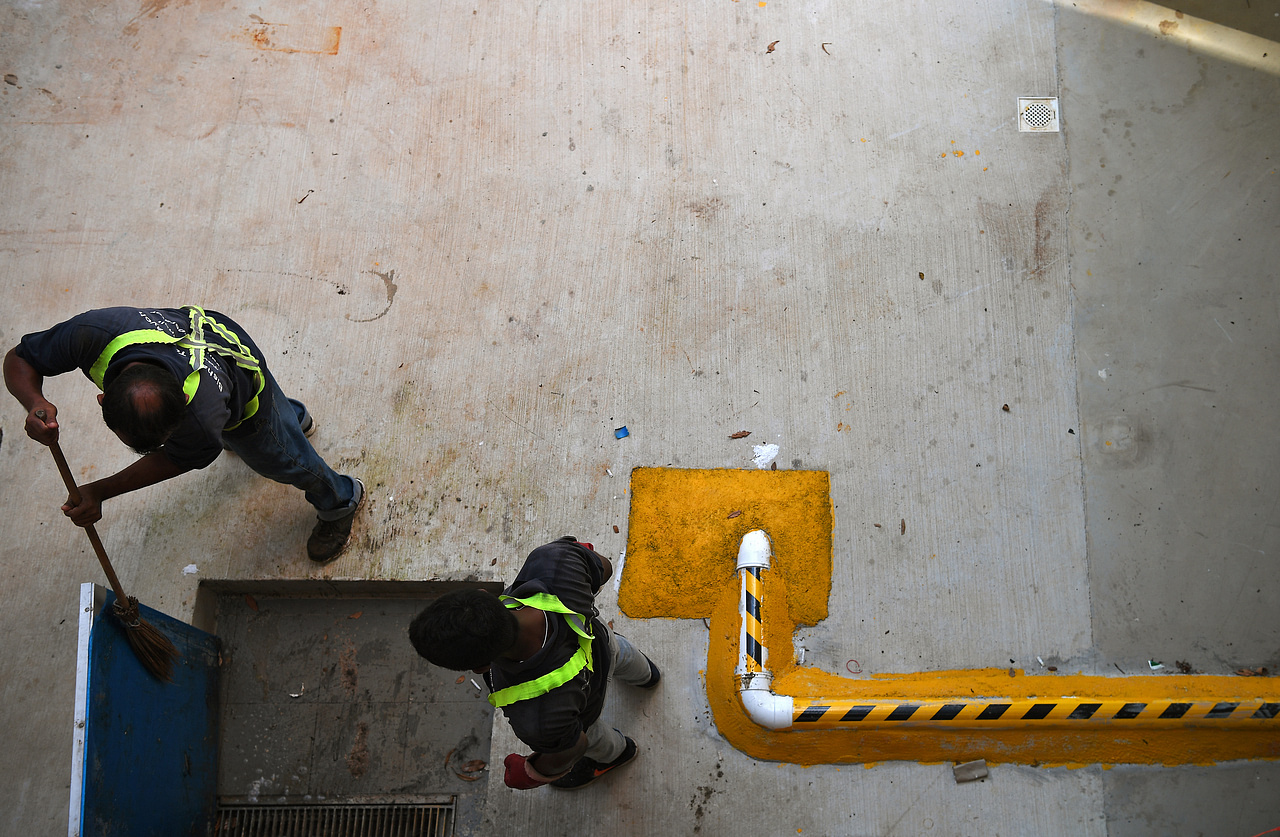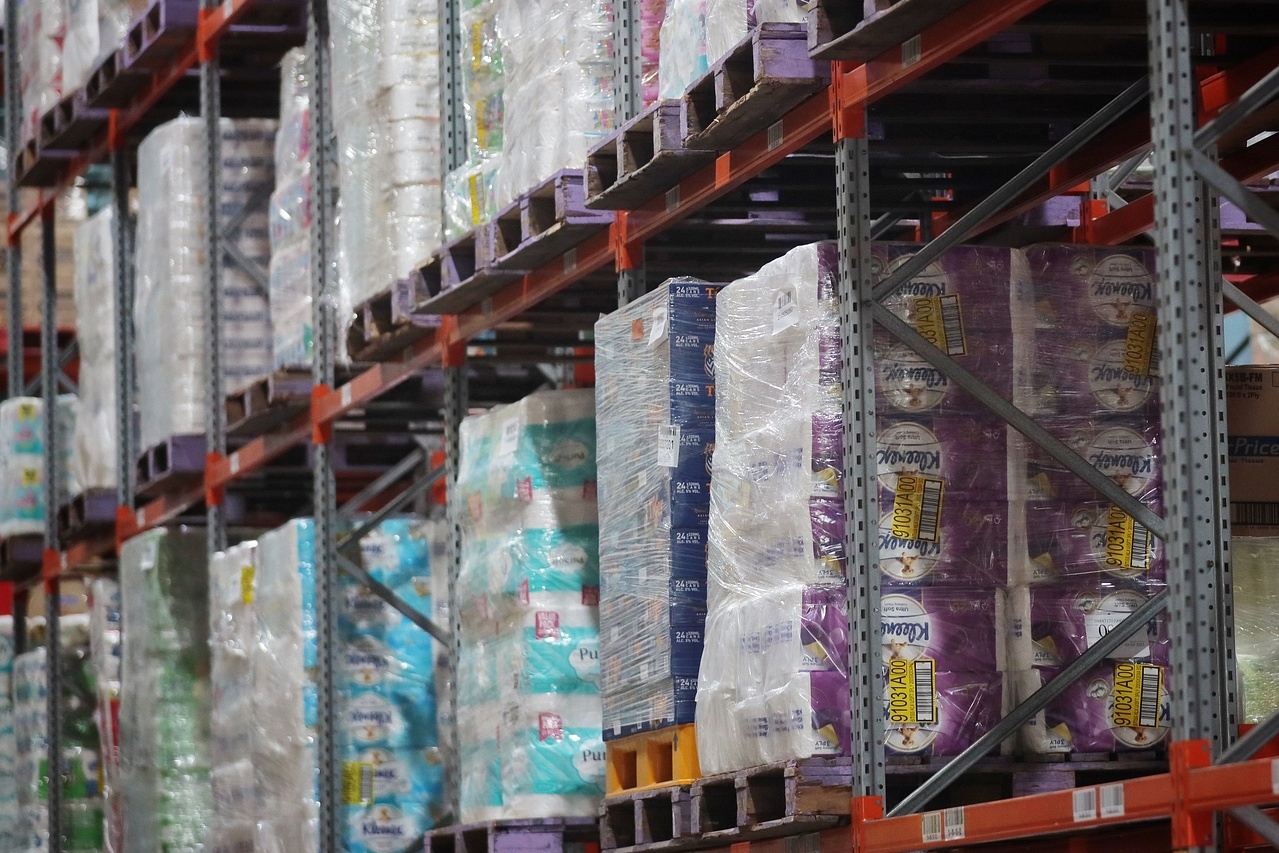Denise Chong
Should we be afraid of "bag rage" if a disposable carrier bag charge kicks in here next year? Abusive incidents involving retail staff flared up in Western Australia in 2018 after a supermarket chain removed single-use plastic bags from its stores before a statewide ban began.
In Singapore, "bag rage" may erupt in a less open but gross way if lots of people throw unbagged rubbish down chutes. This is what some are threatening to do or, at least, they're painting a vivid scenario of it.
"We are going to pour our rubbish and leftover discarded meals etc directly into the rubbish chutes! The authorities cannot blame us if we do not bag them, make a mess and create health, environmental and various contamination issues... breeding pests," wrote a Facebook user.
Rubbish chute rage?
Some netizens kicked up a stink over a recent report which said shoppers will likely have to pay up to 10 cents for a disposable bag at supermarkets starting from the first half of next year.
This was proposed in the National Environment Agency's guidelines on a disposable carrier bag charge announced recently. The guidelines are intended to discourage the excessive consumption of disposable bags and promote the use of reusable ones. The majority of supermarkets here are expected to implement this charge in their stores.
"I don't believe in this environmental nonsense. It is profit at all cost genius corporation. We actually need these plastic bags for garbage disposal, otherwise I will just dump the garbage 'raw' without any plastic bag," wrote another Facebook user.
"Trying hard to save money monthly. Now need to spend money to buy plastic bags for garbage disposal."
Are statements like these just the angry words of people understandably upset at having one more thing to pay for amid a sea of bills? Most people can empathise with being frustrated with additional costs.
Surely, though, they will not cut off their nose to spite their face?
Visions of virus-laden wet tissues, poop-filled nappies and rotting vegetables tumbling down and staining the chute before falling into a stinking, spumous soup in the bin at the bottom leave us retching.
And actually, it's the items which do not fall into the garbage gloop that are more worrying. Consider a soiled sanitary product stuck somewhere between the seventh and eighth floor. Char kway teow gummed up around the third floor.
The chute heaving with hungry cockroaches from top to bottom.
Surely they will not throw down unbagged noodles tangled with Sadako-esque hair pulled from a bathroom drain?
When they and neighbours open their chute doors, the pests will scuttle into their flats. The noxious fumes will drift past their noses.
Surely they will not do that to the cleaners?

But on second thoughts, there is plenty of evidence of how little some people care about neighbours and cleaners.
Look at residents sneakily ditching bulky items in common areas.
Look at Facebook user Joanne Ho writing of tenants throwing their food waste in the lift area in response to landlords sealing off refuse chutes inside flats: "Happened at my level… End up with lots and lots of cockroaches."
Look at the litter beside and on top of instead of inside dustbins, the fecklessly flicked confetti of cigarette butts, and the Covid-19 stickers stuck on poles, walls, and even plants.
Surely, they will carry out the threat of throwing their unbagged rubbish and kampung spirit down the chute.
We will see if the bag charges kick in.
It is interesting that some people closely associate bagging rubbish with getting free carrier bags from supermarkets. How is it that the responsibility to keep community areas clean is based on getting free bags?
Facebook user Edwin Cheng had a blunt rhetorical response to that issue, commenting that the authorities do not give you toilet paper for free, so do you wipe your behind?

Cashier counter rage
One man put his hands around a supermarket worker's throat, The West Australian newspaper reported in 2018 about plastic bag rage.
"I'm being told that I'm money-grabbing scum," one worker said in a survey of Woolworths supermarket staff about the abuse. "I've had shopping tossed back at my work station."
Facebook user Joceline Joo echoed the potential fear in relation to Singapore's proposed bag charge: "They need to prepare an unwanted box for those who don't have bags and refuse to pay for plastic bags."
Supermarkets need to prepare for more than that - possibly initially more staff trained to help offended customers even though the transition has been inching slowly along for everyone to get used to the idea.
I dread reading reports of customers yelling at cashier aunties, just like it's awful to read about guards and bus drivers getting abused by people angry about each new incarnation of Covid-19 rules.
Countering rage
The authorities or community groups can also prepare by having a wider system for residents to share with the neighbourhood their excess carrier bags for bagging rubbish. After all, people have long complained about their massive collection of plastic bags.
Facebook user C M Samuel commented: "Provided you have a lot of waste to throw every day, on average, a family of four will probably use two (plastic bags) per day for their kitchen waste and other waste. I had thrown away close to 1kg of plastic bags that I collected over a period of time despite using (plastic bags) as garbage bags."
We can also prepare by broadening our personal definition about what a garbage bag can look like. It does not have to only be the classic supermarket bag with handles.
I found that the plastic bags that toilet rolls come in and bigger online shopping packaging are handy for lining smaller bins.
Cut them open in a neater way that leaves them usable as liners.

The plastic packaging that smaller items come in can be reused to hold small amounts of food waste. If there are little pre-punched holes, you can tie them off to make them usable.
They do not even have to be bags - for example, use disposable food tubs with tight-fitting lids.
Use them instead of immediately binning them.
Use them all and use them harder.
If a potential 10-cent carrier bag charge triggers anger in you, that's fine. It is okay to be fed up about rising costs. Let it also trigger an angry rethinking of how you can use what you already have more intensely.
Just don't throw your sense of responsibility down the chute along with unbagged rubbish.






No comments:
Post a Comment